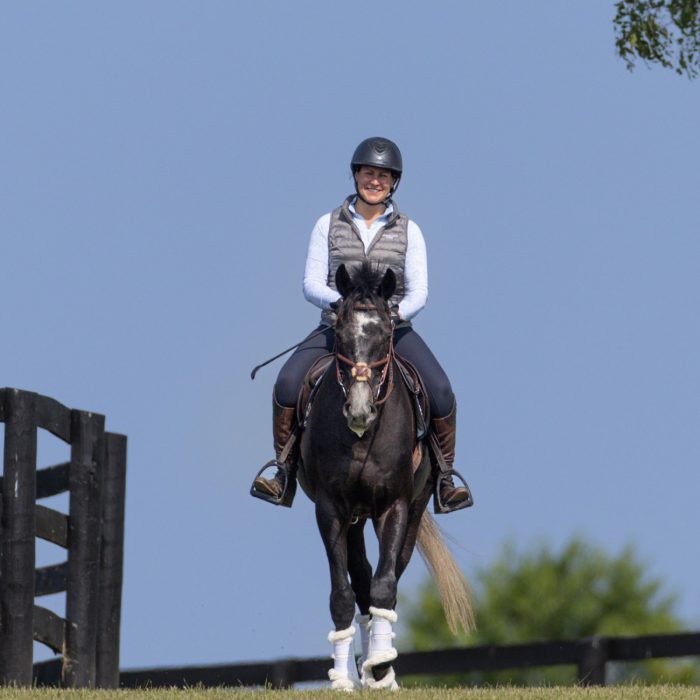More results...
The Importance of Traceability
in Thoroughbred Racing & Aftercare

This article was originally featured in the July 2024 Issue of BloodHorse Magazine in the Second Acts series.
This article is the original format and text. To read the BloodHorse article or to subscribe click HERE.
The Importance of Traceability in Thoroughbred Racing & Aftercare
By: Samantha Smith
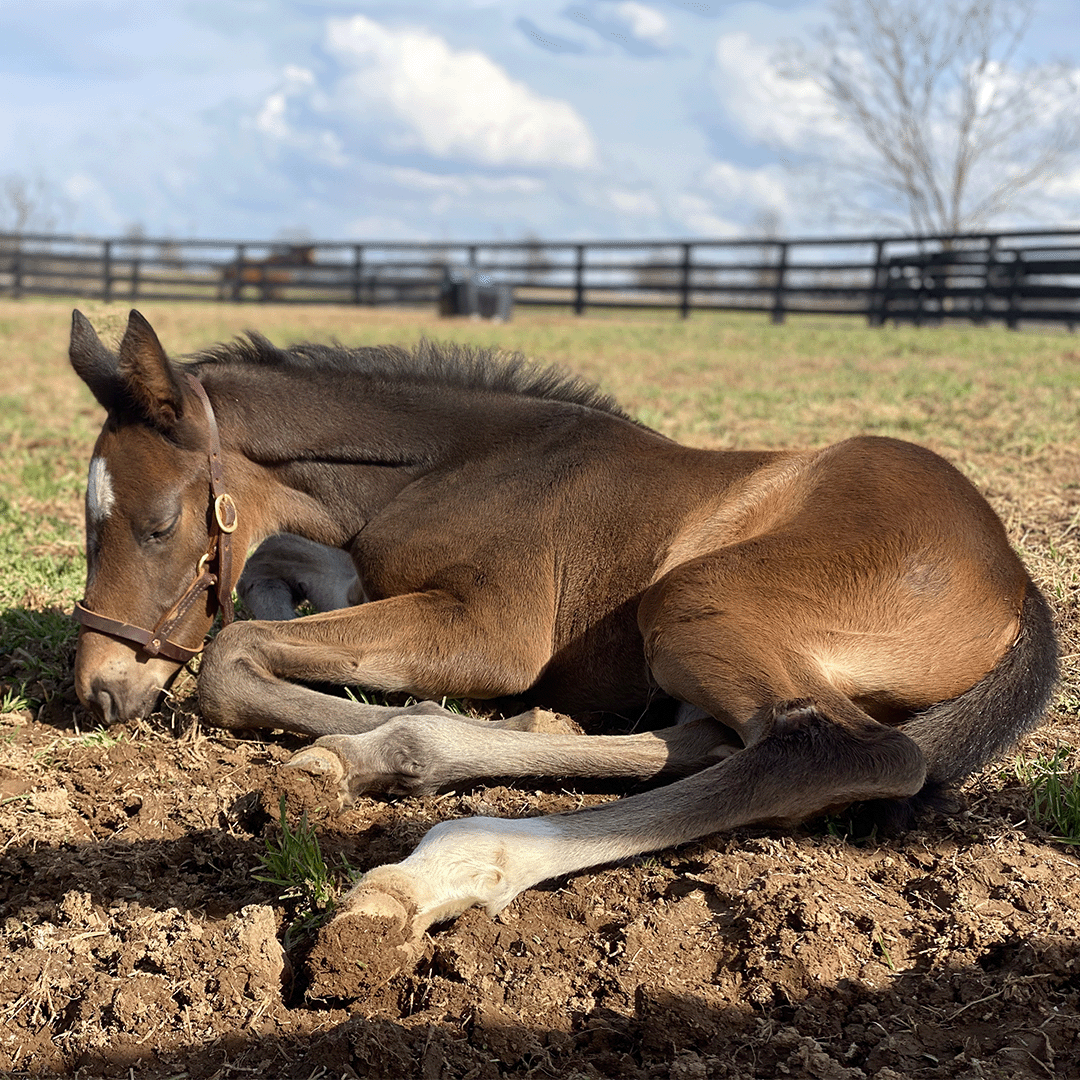
Tracking a horse’s information and whereabouts throughout its life, known as traceability, is indispensable in horse racing. It’s vital for equine welfare, industry integrity, and accountability. In North American Thoroughbred racing, traceability is essential from birth to post-racing but poses persistent challenges. Effective inventory control should be a priority, reducing uncertainty about Thoroughbreds’ whereabouts. Thoroughbred Aftercare Alliance mandates inventory reports from accredited organizations, although only after horses reach these facilities. Thoroughbred Aftercare Alliance consulted with various racing professionals, gaining insights into traceability challenges and perspectives across the industry.
Jill’s Story: A Breeders’ Quest for Traceability and Accountability
Jill Pritchard, a dedicated equestrian and breeder, emphasizes the importance of traceability in racing. Her firsthand experiences underscore the challenges breeders face in ensuring the welfare and whereabouts of their horses. Jill shares both positive and negative anecdotes, illustrating where challenges beyond her control persist and improvements can be made. Despite her best efforts, she couldn’t trace some foals after selling them as yearlings, reflecting broader industry challenges in ensuring Thoroughbred welfare and whereabouts.
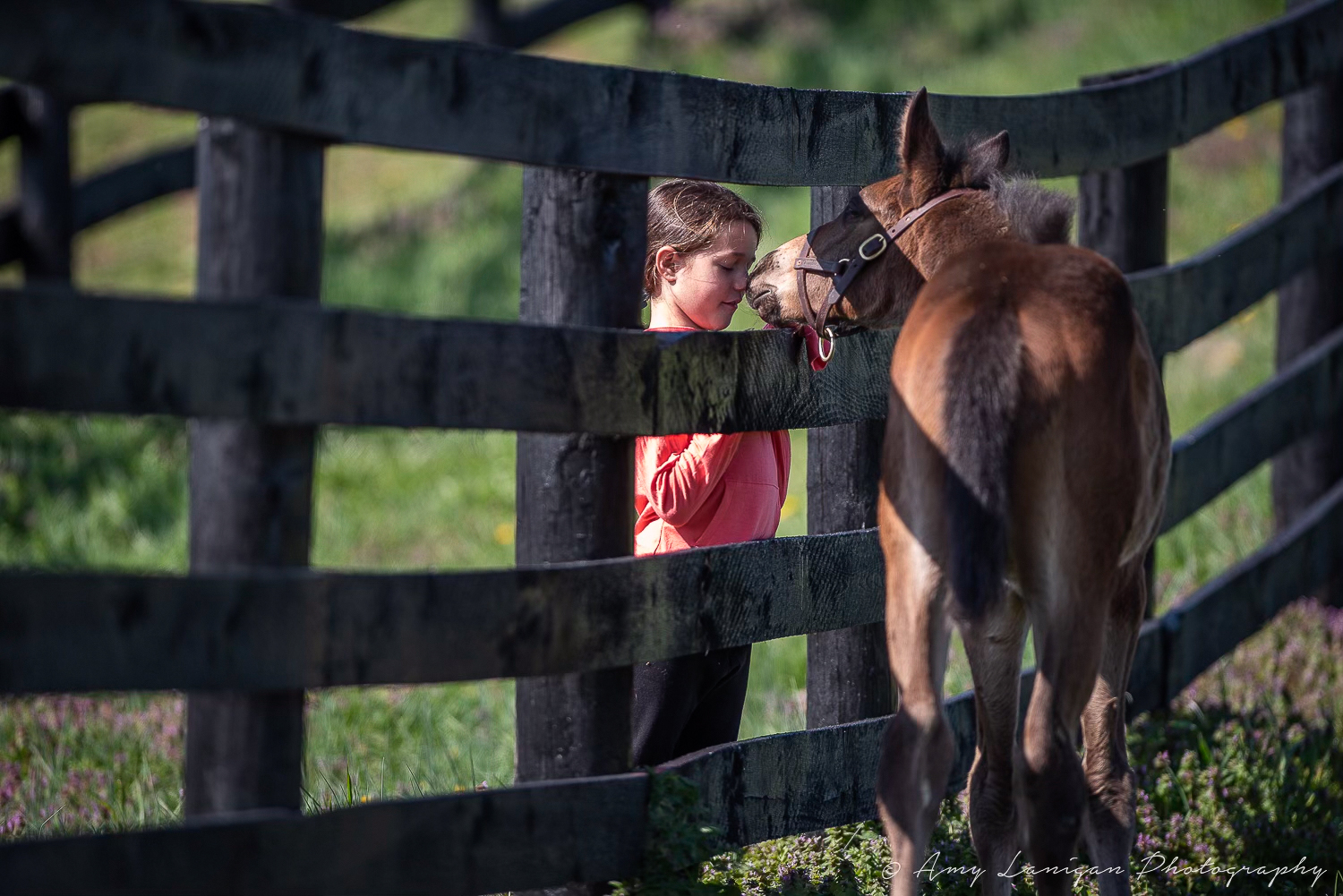
Mom’s Reward
Mom’s Reward is a tragic example of a horse lost in the system. A 2021 filly by Preservationist out of Ventoux. After her sale, the filly never had a published workout, let alone raced. Despite Jill’s attempts to contact the trainer, she received no response. Eventually, Jill learned that Mom’s Reward was euthanized due to a breakdown in training, though this information remains unconfirmed. The lack of traceability and communication left Jill feeling helpless. Unable to confirm the horse’s fate or reach the trainer, she could do nothing to assist Mom’s Reward.
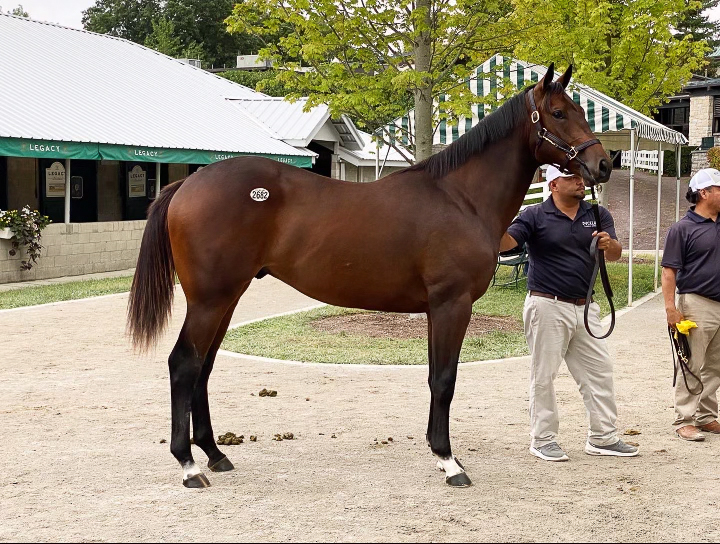
Kicksandgiggles
Kicksandgiggles, trained by Jeff Hiles, stands out as a success story amid the challenges of traceability. Kicksandgiggles is a 2020 gelding by Bernardini out of Driving Rain. Thanks to the help of Buff Bradley, Jill was able to connect with the trainer when she sold him as a yearling and maintain communication with Jeff Hiles throughout the horse’s career. Jill was able to get the horse back when Jeff was ready to retire him, and ensured he transitioned into training for a second career. Today, Kicksandgiggles lives happily with his new owner in Minnesota, a testament to the importance of open communication and accountability in ensuring the welfare of Thoroughbreds beyond the racetrack.
Bottle Rocket
Bottle Rocket, a 2012 colt by Intense Focus out of Shoes to Match, was sold as a weanling for $5,500 and went on to win over $226,000. His first owner and trainer kept Jill updated on his progress, but after he was claimed and moved out West, communication became difficult. Eventually, Jill learned from a trainer that Bottle Rocket was retired to the owner’s farm after his last race at Del Mar. Over two years later, he resurfaced at a Quarter Horse meet in Los Alamitos. Despite her best efforts, including speaking with the track steward and reaching out on social media through the Posse Foundation and various Thoroughbred groups, Jill was unable to get any updates from his connections or determine his whereabouts after his last race in January 2020.
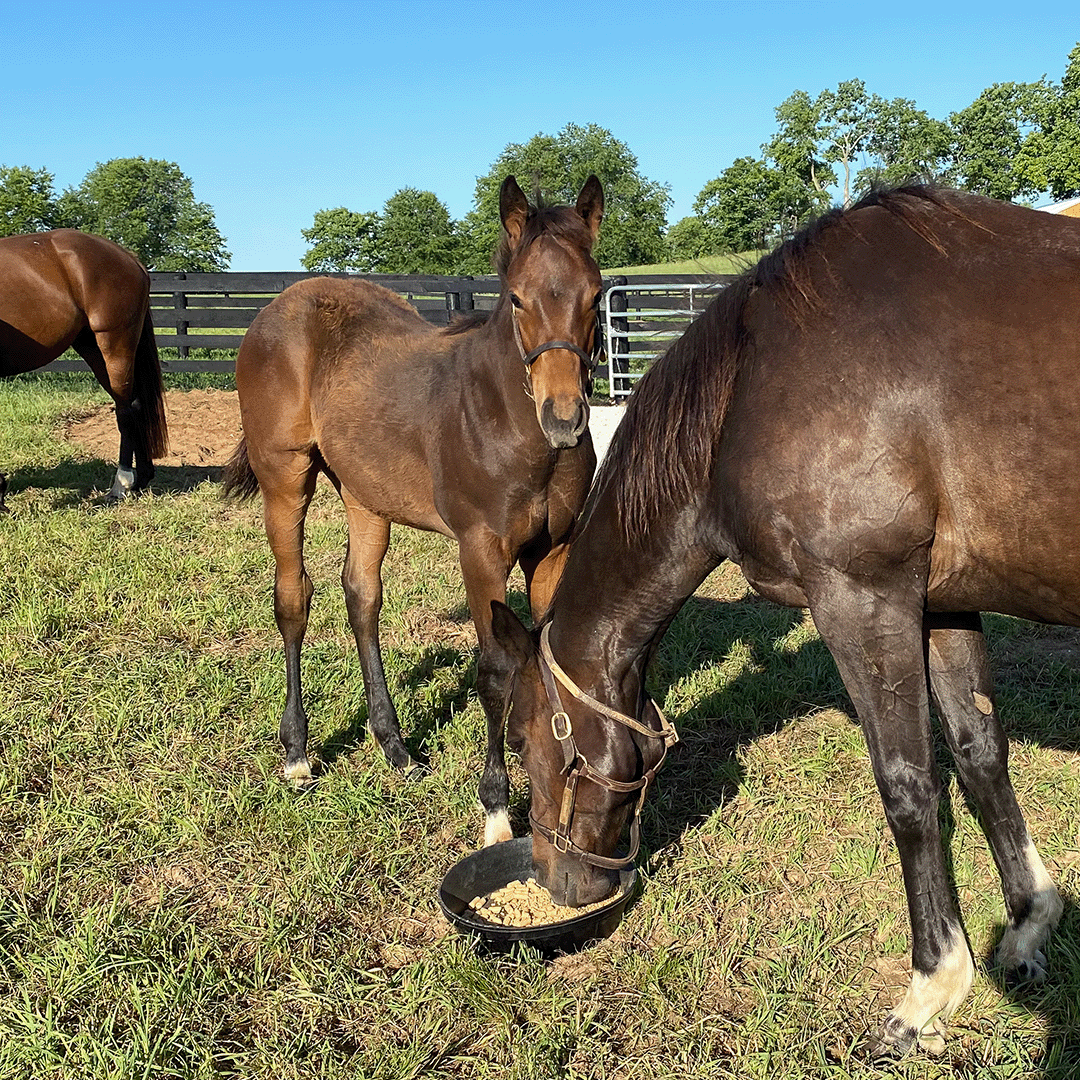
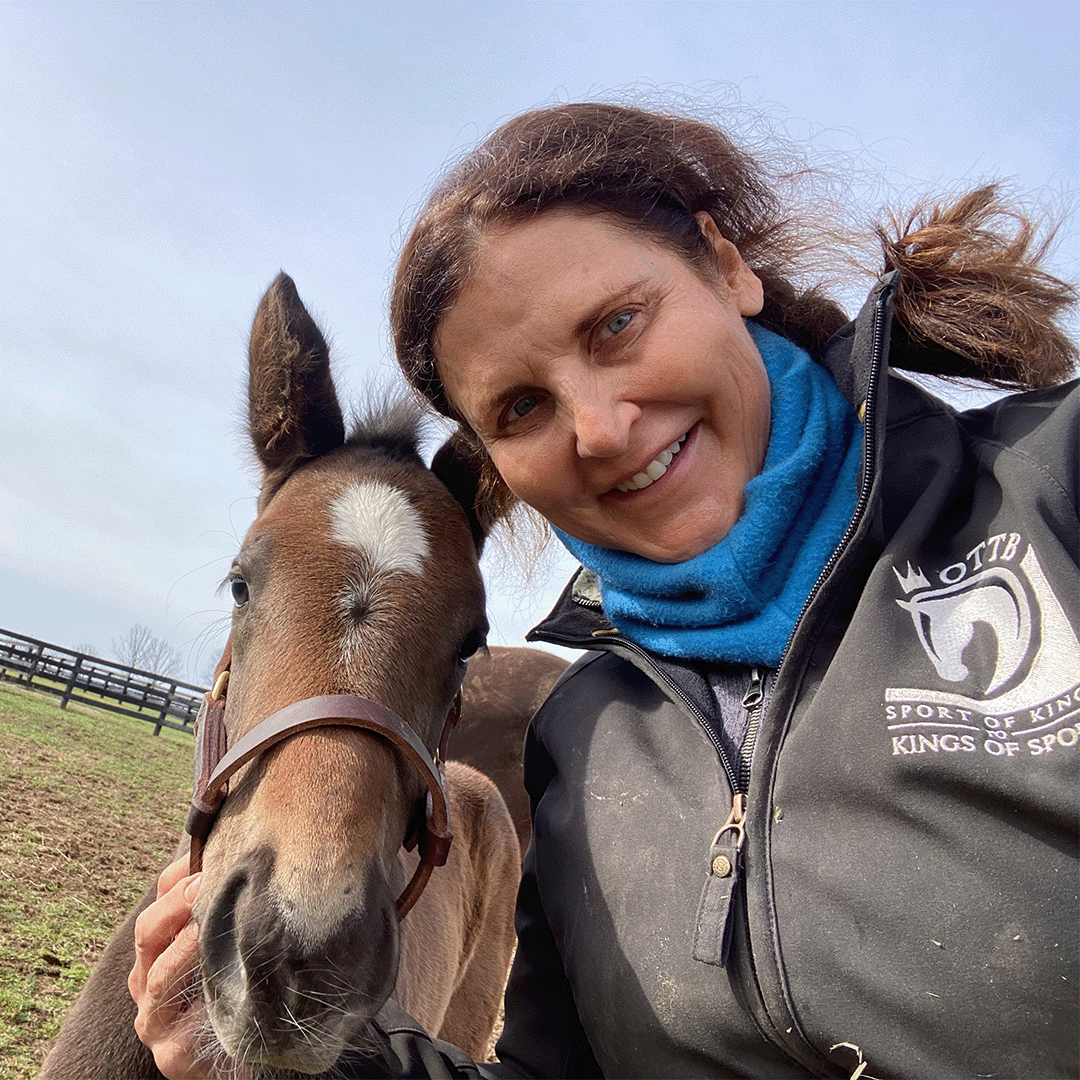

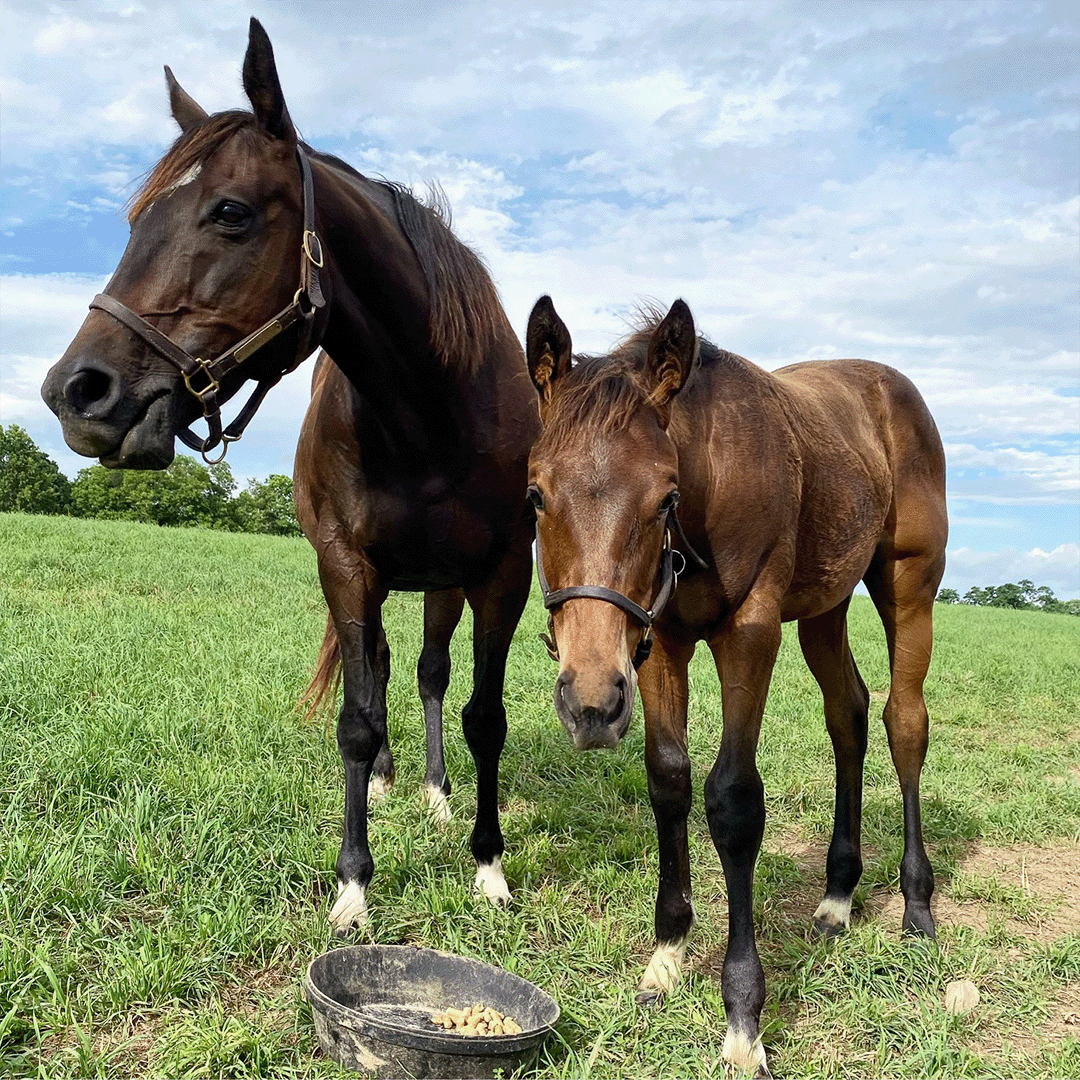
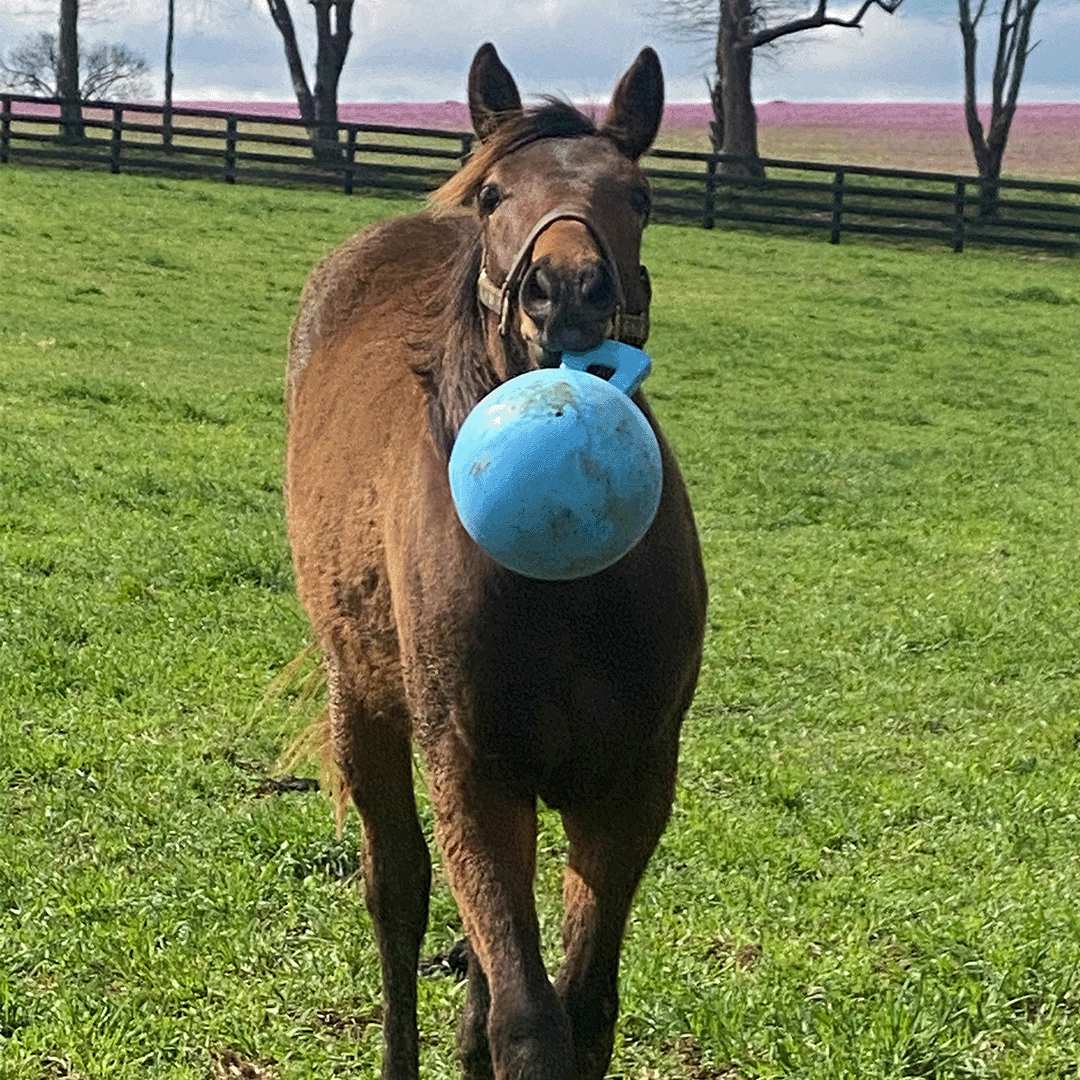






The Registration Process
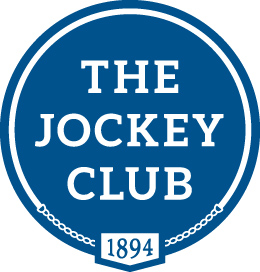 The Jockey Club is the breed registry for North American Thoroughbreds, and it outlines the eligibility rules and requirements for a foal to become a registered Thoroughbred. Since 2017, the implant and reporting of a microchip has been a condition of registration, and in 2018 Digital Certificates of Foal Registration were introduced, replacing traditional paper documents. Both initiatives were aimed at improving identification tools for Thoroughbreds, but also to enhance means of traceability.
The Jockey Club is the breed registry for North American Thoroughbreds, and it outlines the eligibility rules and requirements for a foal to become a registered Thoroughbred. Since 2017, the implant and reporting of a microchip has been a condition of registration, and in 2018 Digital Certificates of Foal Registration were introduced, replacing traditional paper documents. Both initiatives were aimed at improving identification tools for Thoroughbreds, but also to enhance means of traceability.
While these measures have been a welcome development for the Thoroughbred industry, the responsibility of updating ownership still lies primarily upon individual stakeholders. Best practices would see ownership being updated to The Jockey Club each time a horse is transferred, but compliance isn’t guaranteed.
Beyond Racing
Once a Thoroughbred’s racing career ends, tracking its post-racing journey can be additionally challenging.
While the breed registry does not mandate reporting a horse’s retirement, a process is available through The Jockey Club, called Transferred as Retired from Racing, that enables an owner to retire a Thoroughbred from racing without affecting its breeding privileges. If a Transferred as Retired from Racing Thoroughbred is entered at a North American racetrack, racing officials are electronically notified that the horse is retired.
In addition, it is free to transfer ownership of a Thoroughbred using The Jockey Club Registry’s Interactive Registration at registry.jockeyclub.com.
In addition, once a horse makes it to a Thoroughbred Aftercare Alliance-accredited facility, there are mandatory requirements in place for reporting and managing horse inventory.
“Thoroughbred Aftercare Alliance mandates inventory reports from all accredited organizations four times annually,” said Suzie Oldham, Thoroughbred Aftercare Alliance, Inspections Administrator. “This meticulous approach ensures that horses at each of the organization’s facilities are registered Thoroughbreds creating a traceable record of horses passing through the program and offering peace of mind to previous owners who may be seeking their equine companions.”
Conclusion
From birth to retirement, every horse deserves a clear and accountable journey. With industry-wide initiatives and advancements in technology, the goal of comprehensive traceability is within reach. As The Jockey Club’s traceability initiative prepares to launch, and as the industry embraces new technologies and collaborative efforts, we move closer to a future where every Thoroughbred’s story is known and safeguarded. By improving traceability throughout all stages of a horse’s life, including early monitoring and documentation, we can hopefully improve the odds for those horses that fall into the gap of traceability, increasing the number of horses reaching retirement at places such as Thoroughbred Aftercare Alliance-accredited facilities. By working towards improving traceability, we can uphold the welfare and integrity of Thoroughbred racing and ensure that every horse receives the care and attention they deserve throughout their lives.
A Call for Action
Despite the tools in place for reporting a Thoroughbred’s whereabouts, gaps in traceability persist, but efforts such as The Jockey Club’s traceability initiative offer hope. Originally announced at The Jocey Club’s 2023 Round Table Conference, the project aims to identify inactive horses, triggering notifications to managers of digital certificates of foal registration.
“The goal of the traceability initiative is to ensure that every horse’s certificate stays with the horse, which is where it belongs,” said Kristin Werner, senior counsel for The Jockey Club. “Whereabouts of registered Thoroughbreds will improve our understanding of where Thoroughbreds go after their racing and breeding careers in addition to supporting aftercare initiatives. All facets of the industry, from in/out gates at racetracks to breeding farms, racing offices, breeders, owners, trainers, and second career owners should be conscious of the importance of traceability and take steps to ensure the industry can be accountable for Thoroughbreds before, during, and after their racing careers.”
Resources for horse owners looking to find new careers for their Thoroughbreds can be found on The Jockey Club’s website: bit.ly/tjctbcareers.
Perspectives on Traceability
In the quest for traceability, insights from Jen Roytz and Michele Pesula Kuegler shed further light on the challenges and potential solutions from other perspectives in the industry.
Michele, founder and Executive Director of The Horse Fund, stresses the importance of tracking horses beyond their racing careers. The Horse Fund, as the charitable arm of Wasabi Ventures Stables, monitors all present and past equine members of the Wasabi family, providing retirement support. In the past three years, they’ve assisted in retiring 28 horses from their ownership group.
“Horse racing is all about the horse. For all they give to us as breeders, owners, and fans, we owe them a safe and secure retirement at the end of their racing career, whenever that is,” Michele wrote. “In addition to providing this retirement, we also should be documenting it. Noting that a horse has been retired will be helpful in taking care of these beautiful animals.” Michele would also love to see the creation of an ‘Equibase 2.0’ where she would love to see public tracking of horses beyond racing. “As a breeder and owner, I would love to know where all of my former horses are,” Michele explained.
Jen, past Executive Director of the Retired Racehorse Project and current Co-Owner/Manager of Brownstead Farm, a Thoroughbred breeding, sales and racing farm that also specializes in retraining Thoroughbreds for sport, echoes this sentiment. She and Dr. Stuart Brown work diligently to be accountable for their horses, ensuring that every horse they breed has an aftercare letter attached to their digital certificate.
“It matters to us where our homebreds go after racing,” says Jen. “I try to connect with anyone who has one of them to let them know we are available as a resource for their aftercare and make sure they have a copy of the letter, but sometimes it can be difficult to track down contact information for their connections, or to get a response.”
Many of their homebreds not suited to a breeding career come back to their farm to be retrained and sold as sport horses at the conclusion of their racing careers. According to Roytz, The Jockey Club’s new traceability initiative will make keeping track of their homebreds easier, thanks to an added layer of accountability.
By connecting with owners and encouraging responsible retirement, both Jen and Michele advocate for the welfare of horses beyond the track, underscoring the need for a comprehensive tracking system to ensure their safety and well-being
